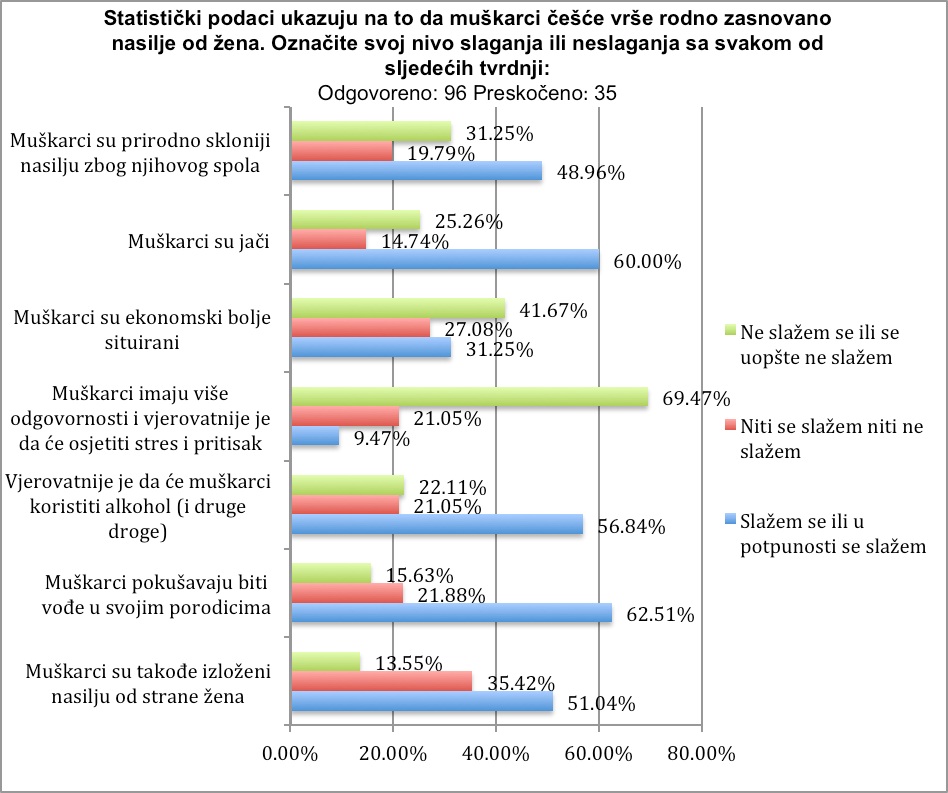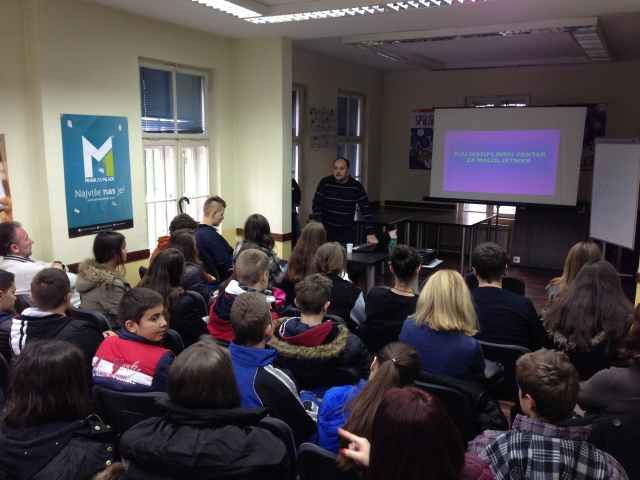Atlantic Initiative (AI) an NGO from Sarajevo and the Democratic Control of Armed Forces (DCAF) from Geneva conducted a research on the ways gender stereotypes and attitudes may lead to gender biasness affecting the work of judicial officials and the experiences of victims, witnesses and defendants. Opinions were collected from 161 judges, lawyers, prosecutors, and expert assistants by implementing an anonymous online questionnaire and individual semi-structured interviews. Although this research does not reflect the opinions of all professional jurists and BiH judiciary, it offers an insight into thoughts and views of the representatives of this community. The complete research may be found at www.atlantskainicijativa.org or www.dcaf.ch and offers results and analysis on how gender affects collegiality, atmosphere and the processes in different court subjects in BiH.
Due to space limitations, this text only reflects one of the subjects we tackled when it comes to gender-based violence. Namely, among others, we were interested in legal experts’ understandings on why men are more violent on gender basis. This research study showed that a number of respondents link violence to natural or in-born male characteristics. As pointed out in the chart, 60% of participants in this research find men more violent due to their strength, whereas 49% respondents find men naturally more prone to violence. Interview respondents also confirmed such opinions, and about half of them ascribed gender-based violence to men’s physical characteristics and their in-born tendency to use violence. One female attorney stated such belief by saying:
Men are more aggressive. Just look at history – they’re always fighting wars. It’s in their DNA, whereas women are much more dedicated to the family.
The conviction that male “nature” is linked to more frequent gender-based violence was disputed by international researches linking domestic violence (and sexual violence) with gender inequality, dominance of men and their rights, as opposed to biological differences among women and men or physical strength. It is significant that no gender inequality, male dominance, patriarchal culture or acceptance of violence in BiH society were mentioned during the interview (or in narrative answers to the online questionnaire). [1]
This kind of understanding is problematic because it is possible that the stereotype of this behaviour being “natural” in men will be used as an excuse for such behaviour. In other words, if male violence against women is believed to be a natural gender consequence, then it may serve as an excuse for legal experts to treat domestic violence, as OSCEwarns [2], less serious in relation to actions outside family surroundings. This stereotype may be connected to having domestic violence being penalised by minimal or even lesser penalties in accordance with BiH laws, which includes adjudging one too many paroles, as pointed out by the OSCE.
Therefore, general effort in promoting a judicial answer to domestic violence is recommended, including a special training course, which shall use contemporary empiric perpetrator and victim profiling; description of most common forms of domestic violence; efficient strategies for judiciary intervention and child risk; and a summary of relevant criminal law in BiH.
This is the first research of its kind in BiH and the region and is a key and important contribution to gender research, its judiciary implications and gender biasness. The study showed presence of gender biasness among legal experts in BiH up to certain extent as is at the international level, and a strong desire and readiness to achieve objectivity and face and recognize stereotypes they might not be aware of and that may influence law implementation.
We hereby thank the Norwegian Ministry of Foreign affairs for the financial support to the Gender and Justice Reform Project within which we conducted this research study and the High Judicial and Prosecutorial Council for supporting data collection for this research.
Author: Majda Halilovi?
Dr.Sc. Majda Halilovi? is the head of research and policy for the Atlantic Initiative in Bosnia and Herzegovina. She’s engaged in researching different aspects of work and safety, as well as social inclusion and exclusion with a series of publications on these topics.
________________________________________
[1] See: Babovi? et al. Prevalence and characteristics of violence against women in BiH: 201, 86. and 88. “Cultural factors are also strongly linked to the risks of domestic violence against women. Although the whole sample exhibits a high agreement with extremely patriarchal opinions about gender roles (…) this agreement is stronger in households where domestic violence takes place …” The culture of “tolerating violent conflict resolution methods” increases the risk of domestic violence against women (…)”
[2] Organization for Security and Co-operation in Europe (OSCE), Mission to Bosnia and Herzegovina, Ensuring accountability for domestic violence: An analysis of sentencing in domestic violence criminal proceedings, with recommendations (Sarajevo: OSCE, 2011).














Leave a comment